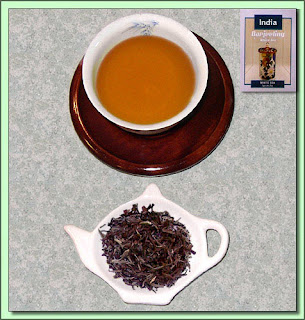 Green tea is often touted as a wonder drink providing all sorts of health benefits. Studies have shown that green tea can prevent cancer, lower blood pressure, boost the immune system and reduce hypertension. Although green tea gets the spotlight, many of these same health benefits can be attributed to all sorts of tea including oolong.
Green tea is often touted as a wonder drink providing all sorts of health benefits. Studies have shown that green tea can prevent cancer, lower blood pressure, boost the immune system and reduce hypertension. Although green tea gets the spotlight, many of these same health benefits can be attributed to all sorts of tea including oolong.Tea is, after all, tea. The only difference between green, oolong, and black tea is the way it has been processed after harvesting. White tea is a little bit different because of the way it is grown, but all tea is from the same plant - Camelia sinensis. And this plant has naturally occurring antioxidants that are beneficial to human health.
Antioxidants are also present in other types of food such as nuts, fruits, vegetables, and wines. They are good for disease prevention by combating free radicals - substances in the body linked to cancer, Parkinson's disease, senile and drug-induced deafness, schizophrenia, and Alzheimer's.
There are several components in tea that act as antioxidants including catechins, flavanoids, and polyphenols.
White, Green or Oolong?
Oolong tea is produced by allowing the tea leaves to oxidize for a short time after picking. Oxidation is the process which makes the leaves turn dark on exposure to oxygen. Oolong is semi-oxidized; black tea is fully oxidized; and green tea is un-oxidized.
Fresh tea leaves are high in catechins. Processing the tea reduces these levels, so the more the tea is oxidized the lower the catechin levels. This means that white tea has the highest levels of catechins closely followed by green tea.
Catechins are the media darling of green tea promoters and usually receive the most coverage when discussing the health benefits of tea. There is one point, however, which is often overlooked: As the levels of catechins decrease during oxidation, the levels of theaflavins and thearubigins increase.
These two substances are found in higher concentrations in oolong and black tea than in green tea and have anti-allergy, anti-inflammatory, and anti-cancer properties. A 2001 Chinese study indicated that the antioxidant properties of green tea and black tea are equal.
So it appears that oxidation does not eliminate the health properties of tea, but simply reduces one type of antioxidant while increasing other health-promoting compounds.
So is Oolong Good for You?
It is safe to say that all tea is good for you, but since we are particularly interested in oolong, let's see what the medical literature has to say.
*Diabetes - Oolong tea may be an effective adjunct to oral hypoglycemic agents in the treatment of type 2 diabetes.
*Eczema - Japanese researchers reported that patients with a form of eczema improved after drinking a liter of oolong tea daily.
*Allergies - Two catechin derivatives (C-1 and C-2) with potent antiallergic activity were isolated from Taiwanese oolong tea.
*Bacterial infections - Oolong tea polyphenols strongly inhibited the enzyme activities of some types of streptococci.

*Cavities - Oolong tea polyphenolic compounds could be useful for controlling dental caries.
*Obesity - Consumption of oolong tea stimulates both EE and fat oxidation in normal weight men. *Cancer - Oolong tea extract has a chemopreventive action against hepatocarcinogenesis.
Great stuff! Drinking oolong tea will make you healthier, live longer, be more beautiful and have great teeth!
The Bottom Line
Drink oolong tea for your health, but don't lose sight of this simple fact - people have been drinking tea for thousands of years because it is a great tasting beverage. Sit back, relax, and savour the sensations as you sip this wonderful drink. It's good for the soul, and what's good for the soul is certainly good for the body.
by Ross MacIver

No comments:
Post a Comment